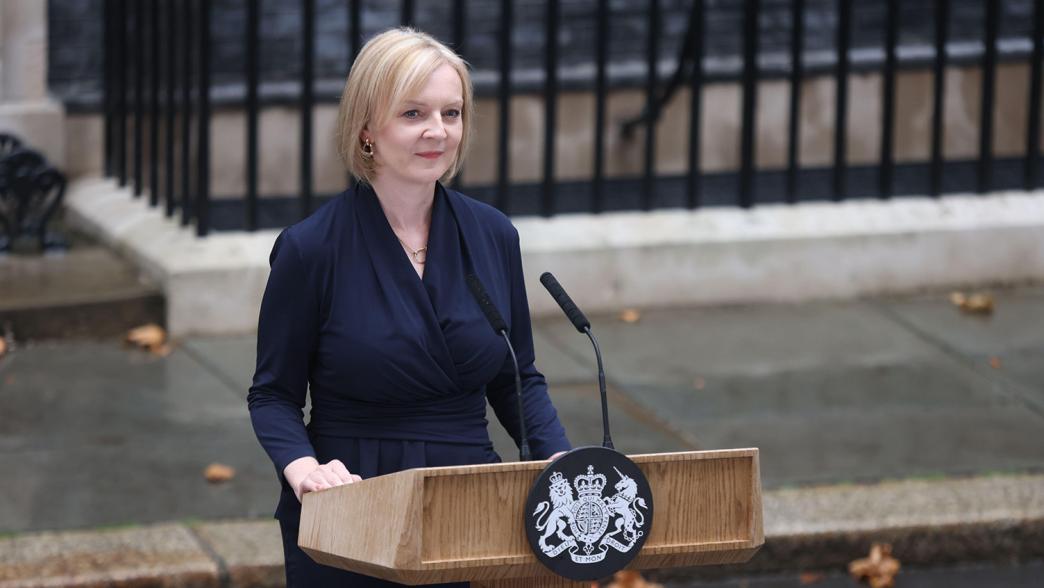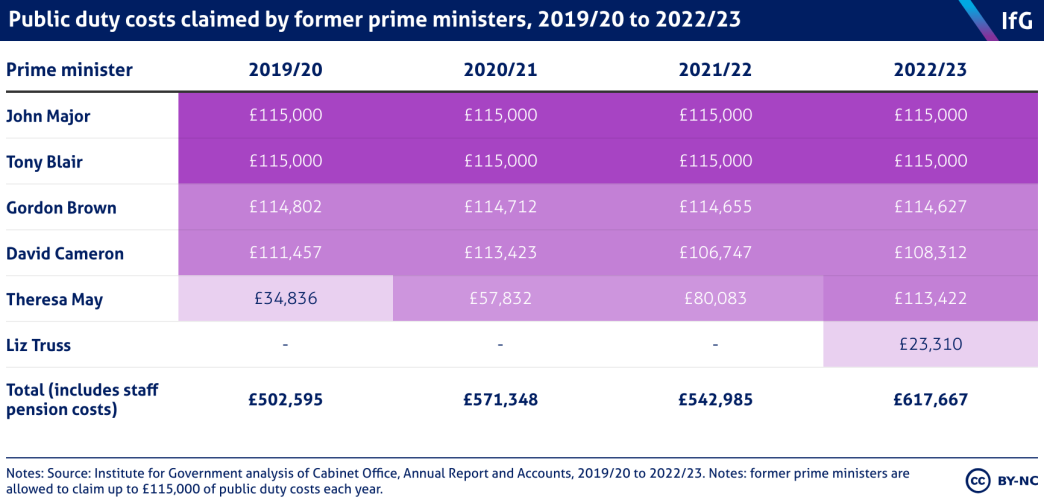Former prime ministers: what support do they get from the state?
Prime ministers are entitled to public financial support in the form of the Public Duty Costs Allowance (PDCA).

What support is available to former prime ministers after they leave office?
Prime ministers are entitled to public financial support in the form of the Public Duty Costs Allowance (PDCA), which was established after Margaret Thatcher resigned. The PDCA allows a former prime minister to claim up to £115,000 a year – for life – for the “necessary office costs and secretarial costs arising from their special position in public life.” 22 Cabinet Office, Public Duty Costs Allowance guidance, March 2022, www.gov.uk/government/publications/public-duty-cost-allowance/public-duty-costs-allowance-guidance It is not a payment or bonus to the former prime minister as an individual.
Former prime ministers have claimed the following amount in recent years: 23 Cabinet Office, Annual Report and Accounts 2021

In 2022–23, Boris Johnson was eligible to claim PDCA after his resignation, though did not submit a claim to the Cabinet Office. Between leaving office in October 2022 and 31 March 2023, Liz Truss claimed £23,310.
Former prime ministers also continue to receive security protection. 24 Pandey M, Boris Johnson: What happens now he's resigned?, 6 September 2022, www.bbc.co.uk/news/newsbeat-49086596
Do prime ministers get severance payments?
All ministers are entitled to a severance payment of 25% of their annual salary when they cease to hold office and are not reappointed within three weeks. 25 Ministerial and other Pensions and Salaries Act 1991, legislation.gov.uk For example, in 2021–22, the prime minister was entitled to a salary of £79,936, though Boris Johnson only took a payment of £75,440. This means he was entitled to a severance payment of £18,860. 26 Cabinet Office, Ministerial salary data, October 2021, www.gov.uk/government/publications/ministerial-salary-data
The ministerial salary is in addition to the prime minister’s salary as an MP. From 1 April 2022, the annual salary for an MP is £86,584. 27 UK Parliament, Pay and expenses for MPs, www.parliament.uk/about/mps-and-lords/members/pay-mps, retrieved 21 September 2023
Do prime ministers get special pensions?
Before 2013 there were separate pension arrangements for the prime minister, the speaker of the House of Commons and the lord chancellor (although both Gordon Brown and Jack Straw, then prime minister and lord chancellor, decided to forego these in 2008).
Since the passage of the Public Service Pensions Act 2013, the prime minister has been included in the Ministers’ Pension Scheme, on the same basis as other ministers.
The Ministers’ Pension Scheme is part of the Parliamentary Contributory Pension Fund. The Fund also includes the MPs’ Pension Scheme. Former ministers, including former prime ministers, who were MPs receive pensions from both schemes. 28 House of Commons Library, Pensions of Ministers and senior office-holders, November 2019
- Topic
- Ministers
- Keywords
- Cabinet Public spending
- Position
- Prime minister
- Department
- Number 10
- Public figures
- Liz Truss Boris Johnson Theresa May David Cameron Gordon Brown Tony Blair John Major
- Publisher
- Institute for Government